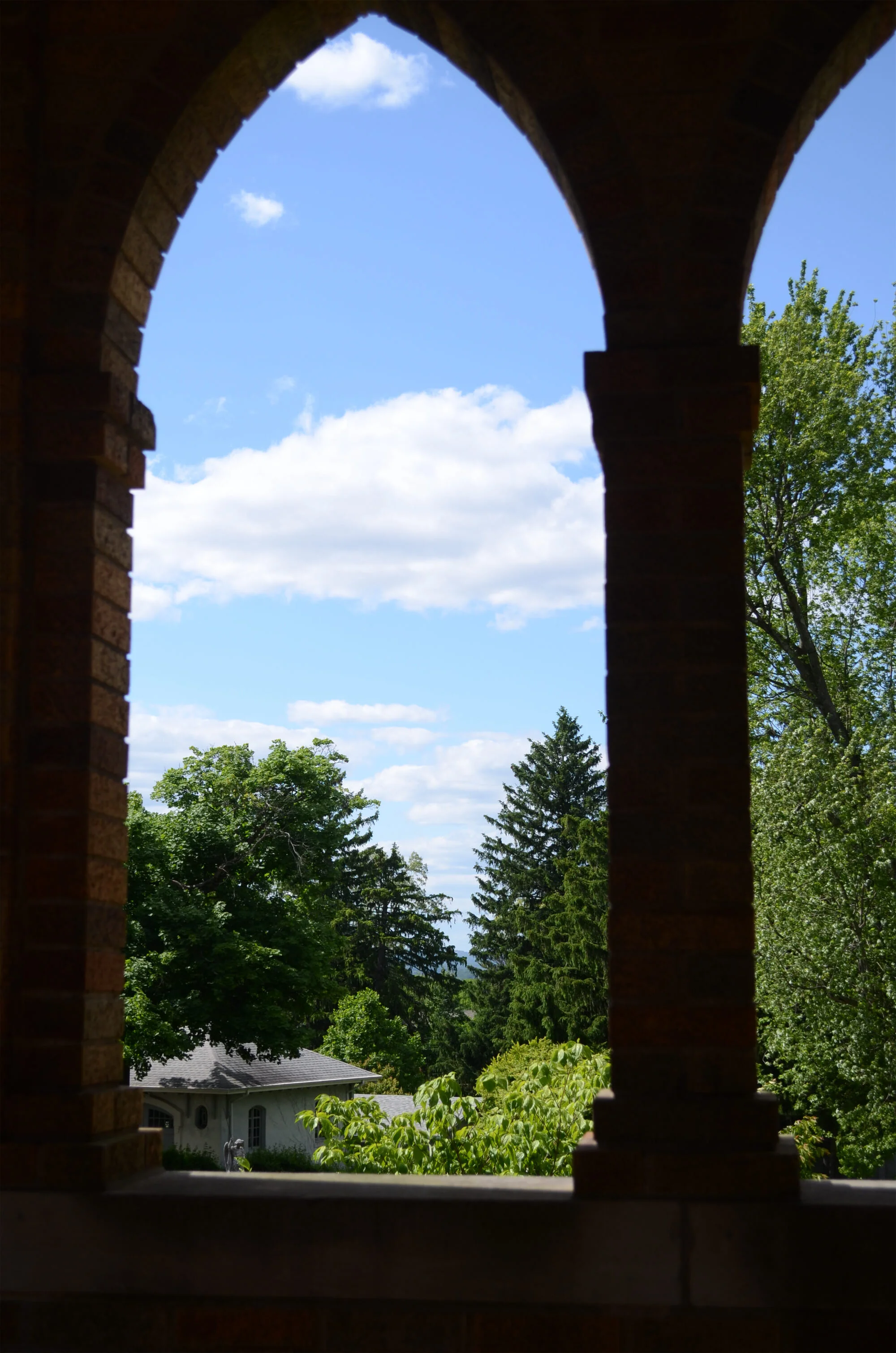
Our Charism
The nuns of the Order of Preachers came into being when our holy father gathered women converts to the Catholic faith in the monastery of Blessed Mary of Prouille in 1206. These women, free for God alone, he associated with his “holy preaching” by their prayer and penance. Our holy Father drew up a rule to be followed and constantly showed a father’s love and care for these nuns and for others established later in the same way of life. In fact, “they had no other master to instruct them about the Order.” Finally, he entrusted them as part of the same Order to the fraternal concern of his sons. Below is our Fundamental Constitutions that paint in broad strokes the essentials of the life of the nuns as lived by each generation.

Sequela Christi
A Life of Prayer
The Holy Sacrifice of the Mass is the heart of our monastic life. Uniting our lives with Christ we are offered to the Father in a holocaust of praise for the salvation of the world. The Divine Office flows out from the Holy Sacrifice of the Mass, extending our worship of God throughout the day. Flowing from our life of liturgical praise is our prayer our private prayer and lectio divina. Each day, approximately 2 hours are set aside so that, like Mary, we may sit at the feet of Jesus and listen to His words.
Our monastery also has the privilege of perpetual adoration of the Blessed Sacrament in so far as we are able. Currently, besides daily adoration we keep watch three nights a week. To adoration of the Blessed Sacrament we join the prayer of the Rosary of the Blessed Virgin Mary. Though not binding, this is the particular apostolate of our monastery of Our Lady of the Rosary and was permitted by an indult from the Holy See.
A Life of Study
Sacred Study is born from attentive listening. For the nuns study is not about acquiring academic degrees but about nourishing our life of contemplation. We cannot love what we do not know. Lectio Divina is intimately connected to study for Dominicans because it is ordained to a real dialogue with God. Our whole life is harmoniously ordered to preserving the continual remembrance of God. Such a life, if faithfully lived leads us to that perfect love of God and neighbor which is effective in caring for and obtaining the salvation of all people.
A Life of Work
Through the observance of work, we participate in God’s creative work-making all things new in Christ. Work provides a wonderful opportunity to show concrete expression of love for our Sisters as each one takes her part, as much as she is able, in the life of the monastery and its needs.
Work in the monastery is also a reflection of Our Lady’s hidden life at Nazareth. Like her we do the simple things like cooking, cleaning, sewing, gardening, bookkeeping, etc. to provide for our sisters. By ministering to our sisters we minister to Christ our Spouse.
A Common Life
“Whoever lives with me has God as his possession!” These striking words of St. Augustine sum up the heart of one of the essential monastic observances of Dominican life—fraternal life in communion, striving to be of one mind and heart in God. This communion is possible only when it finds its source at the heart of Trinitarian communion.
We have not arrived at heaven, we are still on the way, and because each one of us brings to the monastery the frailty of our personal wounds and sins such a life of communion is not easy. It calls for reconciliation when we have offended each other. It asks us to be patient with each other in our failures and weaknesses. It demands that we live the Gospel imperative to “love one another as I have loved you.”
A Hidden Life
The observance of enclosure is one of the gifts of the Church to contemplative nuns. St. Dominic chose it for us in order that, free from worldly affairs, we may have a holy leisure to devote ourselves entirely to focusing on the mystery of God. Our constitutions say that, “this hidden life should open their minds to the breadth and height and depth of the love of God who sent his Son so that the whole world might be saved through Him.”
Enclosure is not an absolute; it is at the service of a life of contemplation. We observe what is called Papal Enclosure-that is we observe enclosure according to the norms of the Holy See for cloistered nuns.

Horarium








